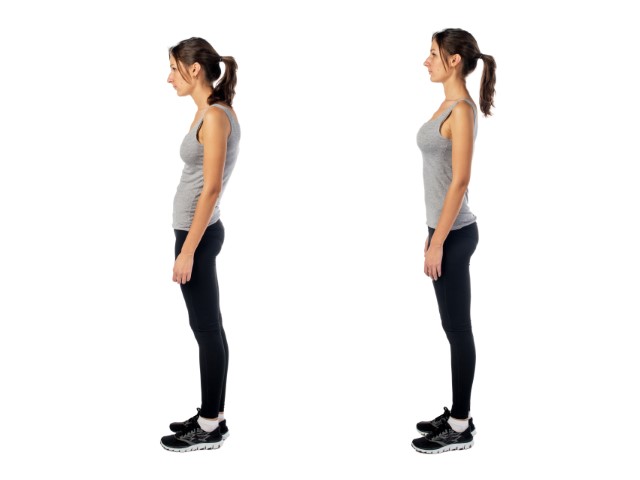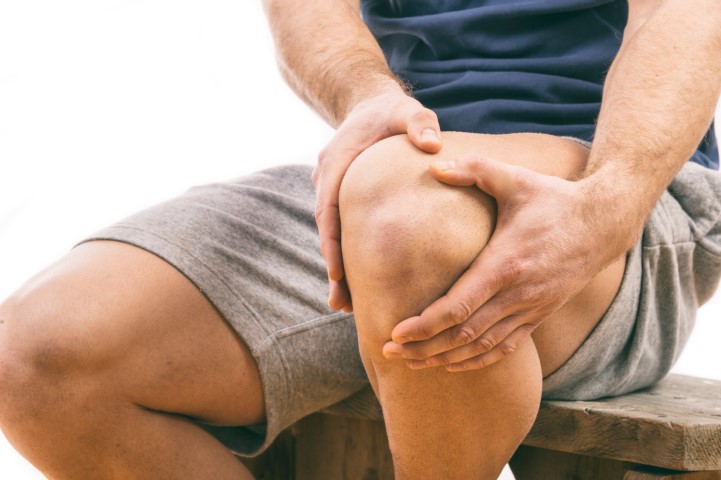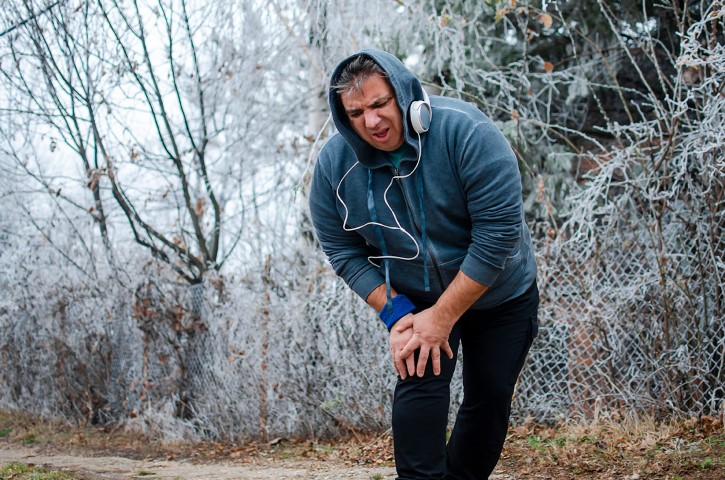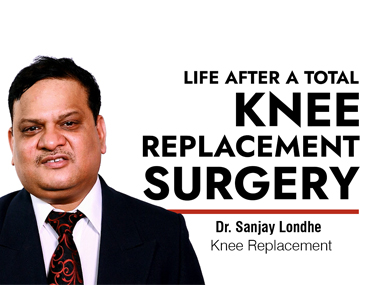Dr. Chandrashekhar P, Director & Head of Orthopedics, Sakra World Hospital, Bengaluru, a specialist in Robotic Knee Replacement Surgery, explains the difference between Robotic Total Knee Replacement (TKR) and traditional TKR, he sheds light on the treatment and benfits of Robotic assisted surgery for knee replacement.
A drop in the temperature can mean an increase in the intensity of knee pain for people suffering from injuries or arthritis. People experience stiffness in joints more than usual during winters. This happens for several reasons, the cold makes muscles feel tight and lead to less flexibility in the joints. This often affects one’s daily routine adding to the physical discomfort. Fortunately, there are ways to prepare for these circumstances and also avoid knee pain altogether. However, it is important to first understand how and why the changes in the weather cause knee pain.
How changes in the weather affect knee pain
- Atmospheric pressure changes
Changes in the atmospheric pressure affect the natural gases and fluids in the body, causing the spaces between knee joints to expand with air pressure changes in the environment. That results in pressure on the nerves which then causes inflammation and pain in the joints.
- Levels of humidity
A significant drop in temperatures causes complex cellular network damage that is a fundamental component of cartilage and bone. This leads to aggravated pain.
- Risk of injury
During winters, the risk of aggravated inflammation and pain due to potential injuries is increased. Cold temperatures are also likely to pose stress on the muscles, especially around the knees, which can prolong your healing process.
- Increased nerve sensitivity
Nerves around the knees become hypersensitive due to a drop in temperature causing mild to moderate pain and inflammation in the joints. This aggravates the formation of scars, abrasions, etc if knee injury occurs.
- Joint fluid viscosity
A drop in temperature causes enhanced viscosity of a joint fluid. A drop in the temperature increases the thickness of joint fluid which behaves like a shock absorber and prevents friction. This leads to stiffness and pain in the knee joints.
- Decreased physical activity
Colder seasons bring changes in lifestyle habits and prevent physical activity. A prolonged inactive lifestyle can result in chronic damage in the knee joints.
- Traumatic Knee
Colder weather also tends to decrease the muscle’s reaction time, around the joints involved in knee movements during running. This causes runner’s knee, a condition involving dull pain that occurs mostly during exercise like running, jogging, etc. This weather change increases the risk of damage in the cartilage around the knee cap, causing sore joints.
- Jumper’s Knee
This is the condition in which there is an injury to the patellar tendon, which connects the knee cap to the shin bone. Jumper’s knee is characterized by inflammation and pain radiating from the back portion of the knee cap. This pain can be aggravated by jumping, using stairs, or kneeling, as cold temperatures reduce blood flow may render increased stiffness of tendons.
Fortunately, you can prepare for the winter season and manage the knee pain effectively, thus even preventing the pain.
Things you can do to manage knee pain during winters



- Keep physical activity consistent
It’s essential to keep your body active, even in the winter months. While you shouldn’t work through significant joint pain without the assistance of a medical professional, stiff or achy joints shouldn’t mean canceling your gym membership.
It is very important to keep your body moving and active in the winter. While it is cozy and warm during the winter, and you feel less motivated to work out or go out altogether, it is essential to maintain your physical activity for your body to remain healthy. Try simple activities like brisk walking, yoga, or indoor swimming so that your joints keep moving.
- Avoid cold baths, and prepare for knee swelling
A drop in the temperature means swelling of joints and muscles. Using special knee compresses or bands can help with knee swelling. Avoid bathing in cold water as low temperatures lead to higher chances of experiencing joint pain. Using warm water for baths minimizes joint pain and helps relieve stiffness in the joints. Warm baths are also commonly soothing for everyone, and can specifically soothe knee pain for people suffering from arthritis.
- Make sure your posture is good



A major reason for increased joint pain is bad posture. Slouching, constant sitting for long hours, heavy lifting, etc lead to joint pain. Practice maintaining an upright posture during daily chores, and other physical activities to prevent aggravated joint pain during winter.
- Stay warm
This may seem like basic advice, but more often than not it is the basics that help you prepare for uncomfortable circumstances as such. Taking care of your joints, especially your knees during winter is essential. Wear sufficient warm clothing while going outside, so that your body is warm against the harsh winter. Adjust your indoor temperatures wherever possible, for example in your home or your car. The body is prone to cold while you are sleeping, hence the use of blankets, heated pillows, or even electric blankets if needed can prove to be quite beneficial in the long run.
While these are preventive measures, they are not going to eliminate your knee pain. If your knee pain is persistent even after these measures you must consult a physical therapist or your doctor to find out the underlying problem and an appropriate solution.
Suffering from severe arthritis of the knees can be a tedious condition with consistent symptoms such as pain in the knees that worsens over time, stiffness, swelling of joints, etc. These persistent symptoms can become a hindrance in one’s day-to-day functioning.
Non-operative treatments like knee joint injections, activity modification, and anti-inflammatory medications can be the first option for most people, but when these have failed to provide adequate relief, Knee replacement surgery can be of help.
Knee replacement, also known as knee arthroplasty or total knee replacement, is a surgical procedure to resurface a knee damaged by arthritis. Metal and plastic parts are used to cap the ends of the bones that form the knee joint, along with the kneecap.
Traditional total knee replacement involves an incision over the knee of about 7-8 inches, and a recovery period of 3-5 days at the hospital.



According to an article by UW Medicine Orthopaedics & Sports Medicine on Total Knee Replacement surgery most reports of surgeons performing knee replacement surgery have been excellent and the results have shown ten-year success rates above 90 percent.
More than 90 percent of total knee replacement patients experience substantial or complete relief of pain once they have recovered from the procedure. The large majority do not require a cane even if there is the one used before the surgery and can walk without a limp.



The major benefit of total knee replacement surgery is the better quality of life. There is a restoration of the ability to carry out activities that they could not do before, due to the pain and stiffness, etc. The pain and the stiffness from the arthritis are relieved by the surgery. It is reported that the distance one can walk will improve well because of the diminished pain.
One major complication that can hinder a total knee replacement surgery is the patient’s allergy to metal components. Some people may experience a reaction to the metal that is used in the artificial knee joint as implants may contain titanium or cobalt-chromium-based alloy. This is where Gold Knee Implants come in.
What are Gold Knee Implants?
For patients who have shown an allergic reaction to metals, the Gold knee replacement procedure can be considered a very good option. The knee implants used for the surgery have a Titanium Niobium Nitride (TiNbN) coating on their surface. This coating gives a golden color to the implant and makes it allergy-proof because of inert material’s coating.
Why one should opt for Gold Knee Implants?
The implant gold knee is one of the best artificial joint. It has a longer life span and does not trigger any allergic reactions. According to an article by Bone and Joint 360 the Golden knee implant is compatible with human tissues, and it is highly recommended for patients that are 60 years of age or below.
Knee implants are normally made of an alloy of chromium and cobalt and sometimes they tend to release metal ions inside your body. Patients who may experience an allergic reaction tend to experience inflammation in the knee joint because of the same. Eventually, complications like infections, loosening of the joint, and persisting knee pain develop.
Benefits of a Gold Knee Implant
- Durable implants due to the titanium coating.
- The higher life span of the Gold Knee implant as compared to regular knee implants.
- Works well with new-age surgical techniques. The outcomes are better when compared to regular implants.
There are various types of implants used other than Gold Knee Implants as well, such as metal on plastic implants, which are the most common type of implants, or ceramic on plastic implants, for people who have a sensitivity to nickel used in metal implants, leading to an allergic reaction or people who are sensitive to nickel used in metal implants.
It is important to evaluate all your options before opting for a total knee replacement surgery, the cost, the biocompatibility, and especially about the type of metal that is used, in case the patient is allergic to a certain metal or alloy.
You might be thinking: “Why do my joints ache when it’s cold?”
Usually, joint pains are symptoms of some injury or an extension of an underlying health condition. But, the winter season does create more muscle stiffness and joint aches if one is spending more time outdoors. It is also true that many people who suffer from chronic joint issues like arthritis and osteoarthritis find that their condition worsens during the winter season. And, as we all know that warmth improves your blood circulation, keeps all tissues well-nourished, cold weather can lead to a drop in blood circulation levels. Though there’s no scientific evidence behind this relationship, taking a few extra measures to ease joint pain may help you tackle problems related to fluctuating temperatures. Let’s now take a brief look and understand the possible reasons for this kind of pain, tips on tackling joint stiffness during cold, and the reason why you should not have a Total Knee Replacement surgery during the winter season.
POSSIBLE REASONS FOR JOINT PAIN IN THE WINTER SEASON
1. During winters, the protective fluid inside our joints gets thicker leading to stiffening of the joints.
2. Drop in the barometric pressure can cause your muscles, tendons, and surrounding tissues to expand beyond the confined body space which causes pain.
3. Even the nerves become sensitive during the winter season leading to increased anxiety and tension on the muscles and joints.
4. People who are less active in the winter season face issues while maintaining the good health of the joints.



5. During winters, our body circulates less blood to the entire body and even to the central areas of the body causing more pain and stiffness.
TIPS ON TACKLING JOINT PAIN AND STIFFNESS DURING THE WINTER SEASON
During the winter season people who experience chronic joint stiffness and pain, their symptoms get worse due to the cold weather. Taking few measures and extra efforts during winter would help you fight the pain. These tips would not cure your joint pain but help you in causing relief during the winters.
- Stay warm
This tip would depend on the area an individual stays in. Depending on the area, if it is too cold they should wear warm clothes and make sure that their hands, legs, and joints that are affected by arthritis are covered at all times. Try to stay indoors whenever possible.
- Hydrating is a must
Dehydration makes people sensitive to pain. Drinking lots of water during winter is very important as the dry air makes people feel dehydrated, tired, and achy. Apart from drinking water at regular intervals, drinking warm soups and tea can also help you stay warm.
- Take your Vitamin D
Lack of Vitamin D can also be a reason for joint pain. It also raises the risk for osteoporosis. Consult your doctor regarding the best supplement for you.
- Exercise and be active
People often gain weight during winters. As the weather makes you lazy and you tend to eat more. The excess weight would make your joints pain more as it puts a lot of pressure on it. Hence it is important to stay active and maintain your weight.
REASONS WHY YOU SHOULD NOT HAVE TKR DURING THE WINTER SEASON
Many patients have this question regarding when is the best time to have a Total Knee Replacement surgery. People should always do their TKR surgery during warm weather as it makes the recovery process better for a majority of people.
1. Changing of clothes
Changing clothes during the summer season is less hectic as you put on fewer layers for obvious reasons on your body making it easier for the wound to be untouched for a longer period. It is always advisable to wear clothes that are easy to wear and remove.
2. Sleeping
Sleeping for few weeks just after the surgery can be a big task and hence it is always good to wear light cotton clothes and light bedding for a sound sleep.



3. Air conditioner and heater
The normal temperature will make less unnecessary usage of the heater and air conditioner while you are recovering from the surgery. Warm weather always allows you to get out for small walks and trips without any hassle.
4. Travelling
Post your in-home therapy, you would be often visiting your therapist for offsite therapy and that’s when avoiding unnecessary (traveling in winter season) and load on your surgery site is crucial. Driving by yourself is a strict NO during this period.



5. Work-life balance
Taking days off and resting for an adequate amount of time is paramount and hence deciding on the right surgery time during your long holidays will help you go through it faster and better. It’s always advisable for seasonal workers to have surgery, especially during their off-season.
Several additional factors contribute to one’s recovery, especially total knee replacement. And, despite a successful TKR, rehabilitation will play a key role in a successful recovery. Also, it is important to acknowledge the fact if you are a person that gets affected negatively, then paying closer attention to your diet and supplements becomes of the highest importance. Preparing yourself from the inside out can help you minimize the impact of cold weather in general and also in case of surgery. Consuming vitamin-rich foods and consulting your primary care doctor in case of any difficulty will only in faster recovery.
With an experience of more than 30 years of practice, Dr. Sanjay Lodhe throws light on the benefits of opting for a TKR. With all the merits and precautions one must take post-surgery, this profile is meant to put your mind at ease if you’re planning on opting for it soon.





